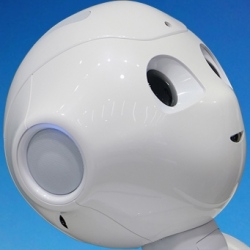
After so much technological innovation, people are starting to predict the displacement of workers by automation and AI. With the technology advances that are presently on the horizon, not only are low-skilled jobs are at risk; so are the jobs of knowledge workers. Vivek Wadhwa writes about the future of work:
‘There are more net jobs in the world today than ever before, after hundreds of years of technological innovation and hundreds of years of people predicting the death of work.’
These are the words of tech mogul Marc Andreessen, in a recent email exchange with me on the effect advancing technologies will have on employment. Andreessen says that the same exponential curve that is enabling our current era of abundance will create new jobs faster and more broadly than before, whereas I maintain that we are instead heading into a jobless future, a view he calls a luddite fallacy.
I wish he were right. But with the technology advances that are presently on the horizon, not only low-skilled jobs are at risk; so are the jobs of knowledge workers. Too much is happening too fast. It will shake up entire industries and eliminate professions. Some new jobs will surely be created, but they will be few. And we won’t be able to retrain the people who lose their jobs, because, as I said to Andreessen, you can train an Andreessen to drive a cab, but you can’t retrain a laid-off cab driver to become an Andreessen. The jobs that will be created will require very specialized skills and higher levels of education, which most people don’t have.
I am largely optimistic about the future and know that technology will provide society with many benefits. I also realize that millions will face permanent unemployment. I worry that if we keep brushing this issue under the rug, social upheaval will result. We must make the transition easier by providing for those worst affected. In the short term, we will create many new jobs in the United States to build robots and factories and program new computer systems. But the employment boom won’t last long.
Within 10 years, we will see Uber laying off most of its drivers as it switches to self-driving cars; manufacturers will start replacing workers with robots; fast-food restaurants will install fully automated food-preparation systems; artificial intelligence–based systems will start doing the jobs of most office workers in accounting, finance, and administration. The same will go for professionals such as paralegals, pharmacists, and customer-support representatives. All of this will occur simultaneously, and the pace will accelerate in the late 2020s.
Andreessen agrees that there will be disruption and that professions will disappear because of the productivity improvements that technology will enable. A libertarian book he referenced claims that, although the unemployment of skilled workers through mechanization is a tragedy for those involved, it is an inevitable consequence of societal progress and makes the economic pie bigger, and is therefore a good thing.
Another technologist I hold in high regard, Vinod Khosla, worries as I do about the effect of increasing income disparity. Discussing the revolution in progress in machine-learning technology, which is enabling computers to analyze information and make judgments better than human beings can, Khosla wrote:
While the future is promising and this technology revolution may result in dramatically increasing productivity and abundance, the process of getting there raises all sorts of questions about the changing nature of work and the likely increase in income disparity.
With less need for human labor and judgment, labor will be devalued relative to capital and even more so relative to ideas and machine learning technology. In an era of abundance and increasing income disparity, we may need a version of capitalism that is focused on more than just efficient production and also places greater prioritization on the less desirable side effects of capitalism.
So the real debate is about the new version of capitalism: Do we design this or pretend that everything will be okay as the tech elite get richer and people who lose their jobs get poorer?
